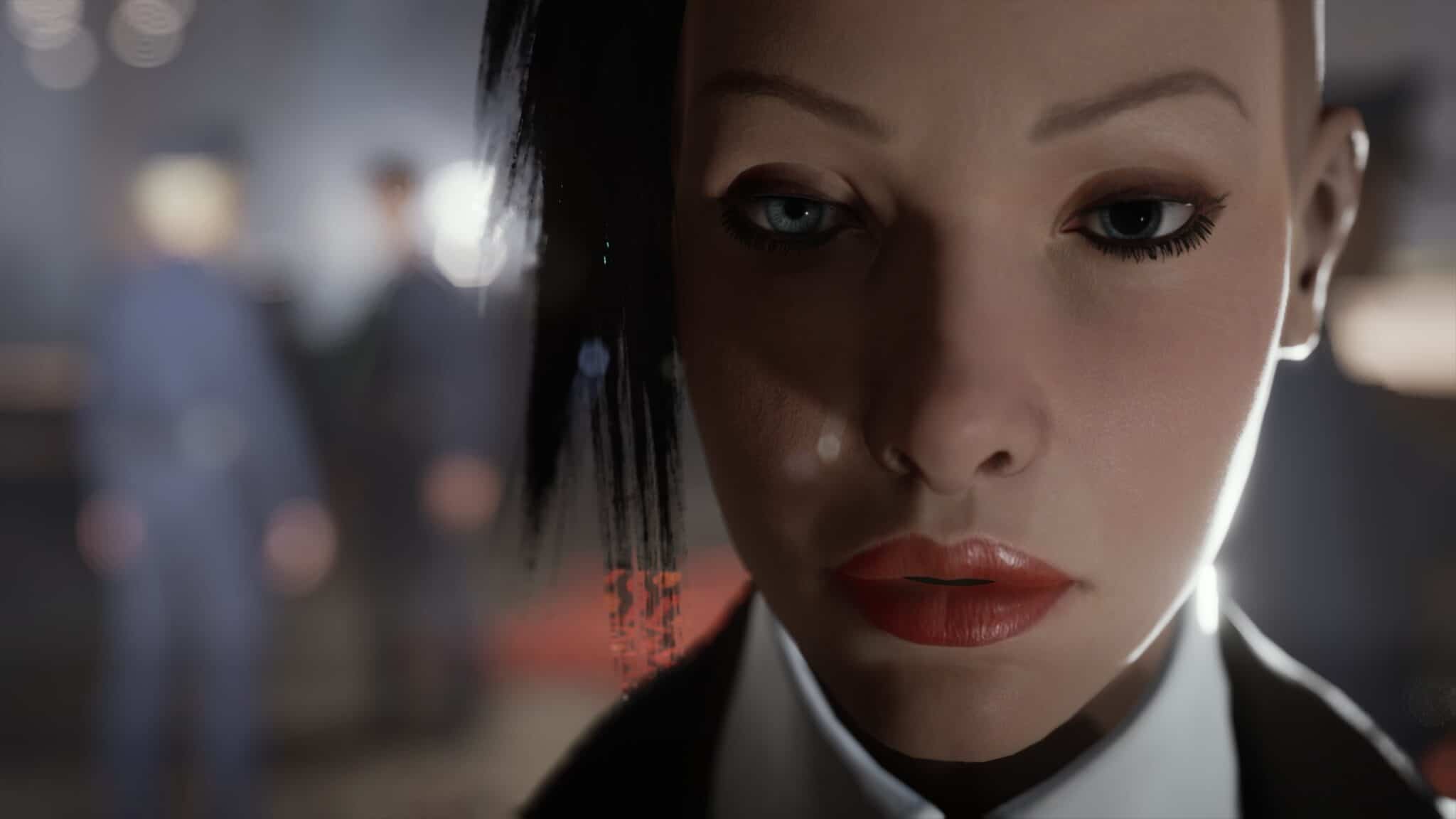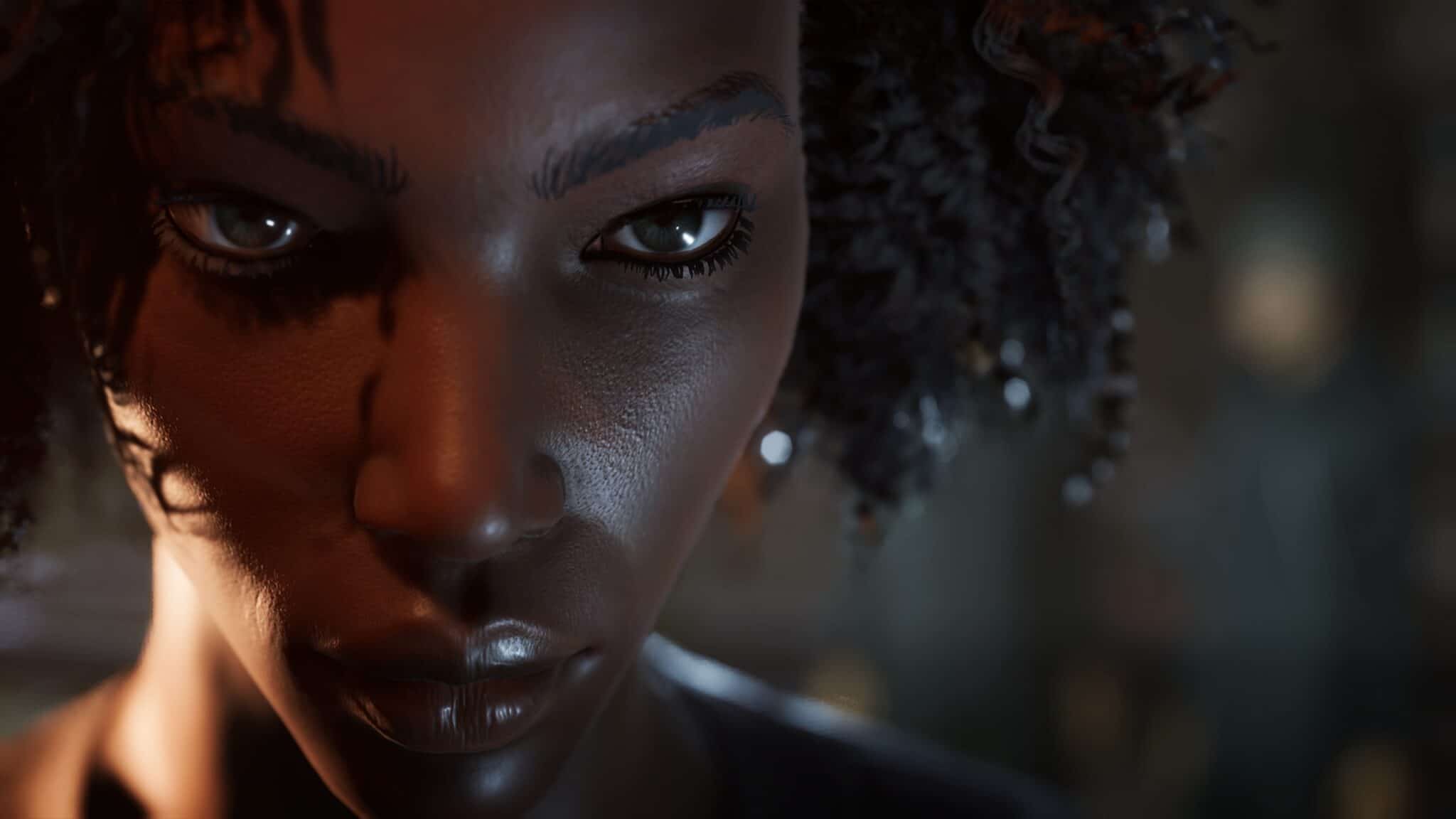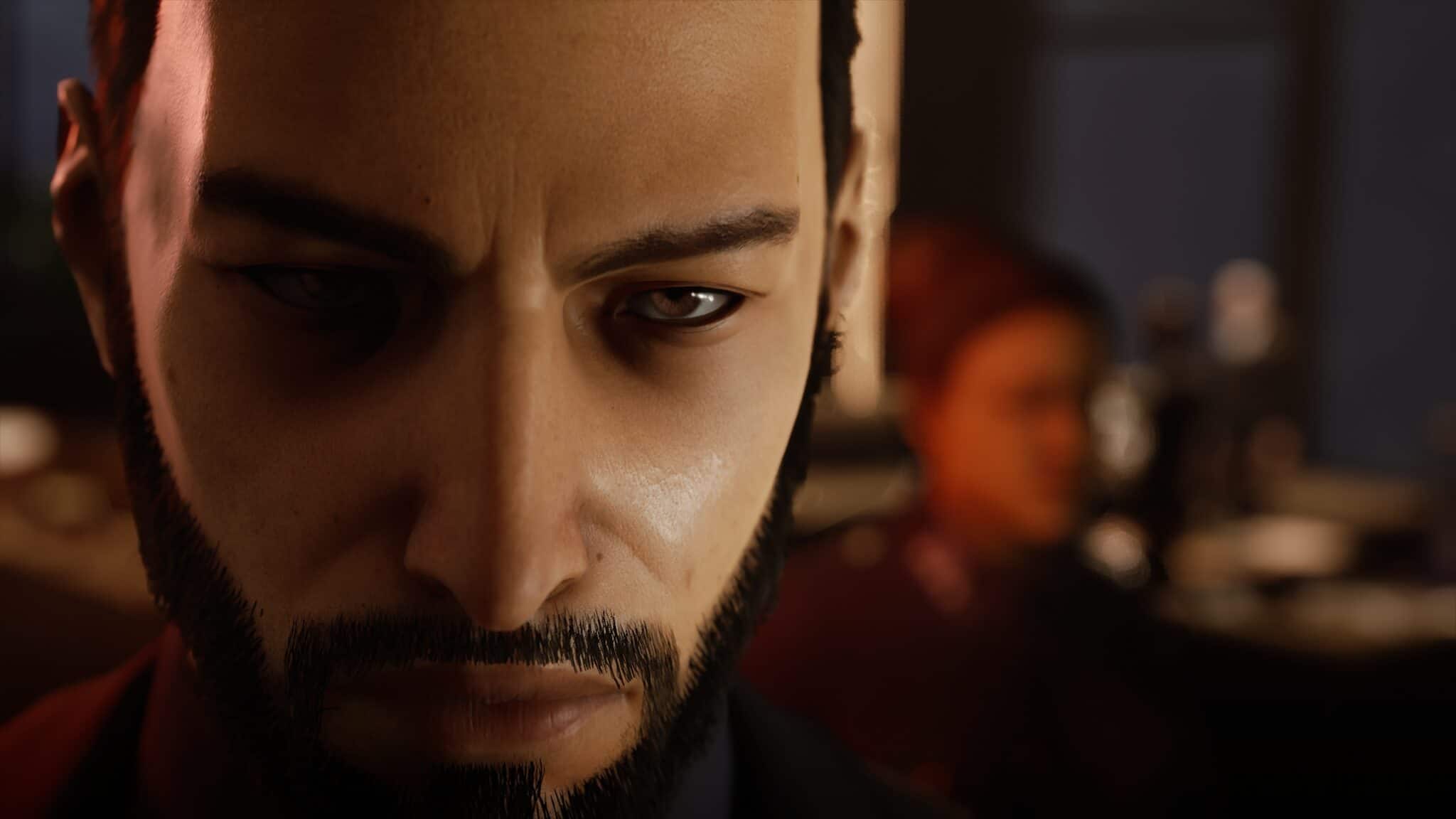Vampire: The Masquerade – Swansong looks like a classic adventure game, but it’s a real role-playing game that you can put your hopes in.
As a fan of Vampire: The Masquerade you have to be able to suffer. Especially now that hopes for a quality-produced sequel to the legendary Bloodlines are rather fading. After all, the development of Bloodlines 2 is in a more than precarious situation since the entire development team was simply fired in February 2021.
But don’t worry. We are here today to bring a little relief to the martyred souls of any recreational bloodsuckers. Because even if it’s not Bloodlines 2, another role-playing game is knocking on our tomb in 2022 with the release of Vampire: The Masquerade – Swansong and is kindly asking to be let in.
Those who love RPGs and The Masquerade in particular should by no means refuse this request! For Swansong is indeed a multi-layered role-playing game that may not tickle the open-world nerve, but offers a rarely seen RPG experience. Namely, one in which the role-playing does not come to fruition in battles, but exclusively in puzzling, exploring and talking.
Anyone who has played the great Disco Elysium knows how powerful this can be. Why do we make this bold comparison and feel confident? Well, we played Swansong for several hours!
Table of Contents
Isn’t this an adventure game?
There were quite a few question marks over viewers’ heads at the announcement of Swansong. The CGI trailers from back then hardly allowed any conclusion as to what kind of game this is exactly now. Only a glance at the name of the developer studio could raise a few suspicions. Behind this game are the developers of Big Bad Wolf. So far, this team is mainly known for the adventure game The Council.
That doesn’t always mean that a studio’s next game will follow this line, but it can! And in this case it does. Swansong very consistently takes what made The Council special and shifts it all into the World of Darkness. In other words, the dark fantasy universe to which Vampire: The Masquerade also belongs.
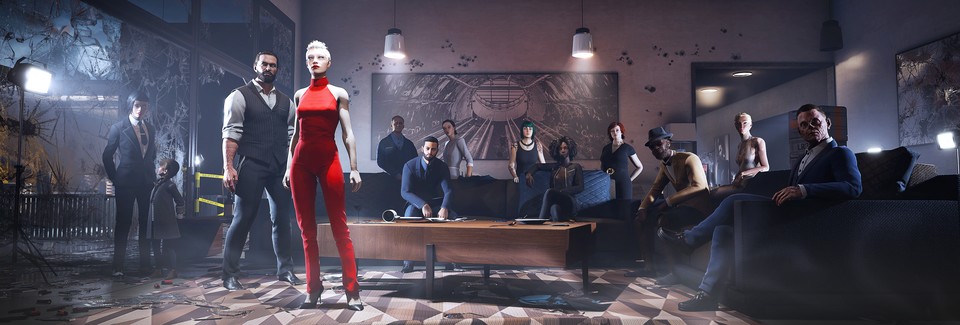
Like The Council, Swansong feels more like a story-driven adventure game and only on second glance does it become clear that it is a role-playing game. The gameplay is basically limited to running through open areas, searching for clues and having dialogues. The rare action interludes can be compared to quicktime events and force us to make decisions under time pressure rather than requiring an effective character build.
This brings back memories of Telltale adventures or Quantic Dream’s interactive films. The Council was even released in an episodic format, typical of Telltale. Fortunately, Swansong does without this.
But what distinguishes Swansong and was already able to set The Council apart: Game mechanically, it all goes much deeper than Telltale has ever dared to.
The Protagonists
In Vampire Swansong you control three highly diverse characters. All of them follow their own storylines, but they are also meant to overlap. Depending on your choices, these protagonists’ stories boil down to 15 different endings.
Quench the thirst for knowledge
We can develop our character in various areas with the help of experience points. The characters are prescribed, but we determine their strengths ourselves. The role-playing game focuses entirely on knowledge or dialogue talents. With the help of various disciplines, powerful vampire powers such as teleport are added, but you don’t have to prepare for battles.
Depending on the traits distributed, conversations or even our search for clues can proceed quite differently. Swansong does not take us by the hand. Almost no information is simply stored in a quest log. We have to write down our own findings or simply remember them. We have to draw our own conclusions.
And in order to get even more relevant clues, the abilities of the respective character occasionally help.
Here is an example:
In the second mission, we make our way in the role of the vampire Galeb to a luxurious flat that is currently being searched by the Boston police. The father of the family living here has literally lost his head and Galeb wants to find out why. Not for the police, but for his secret vampire clan, of course.
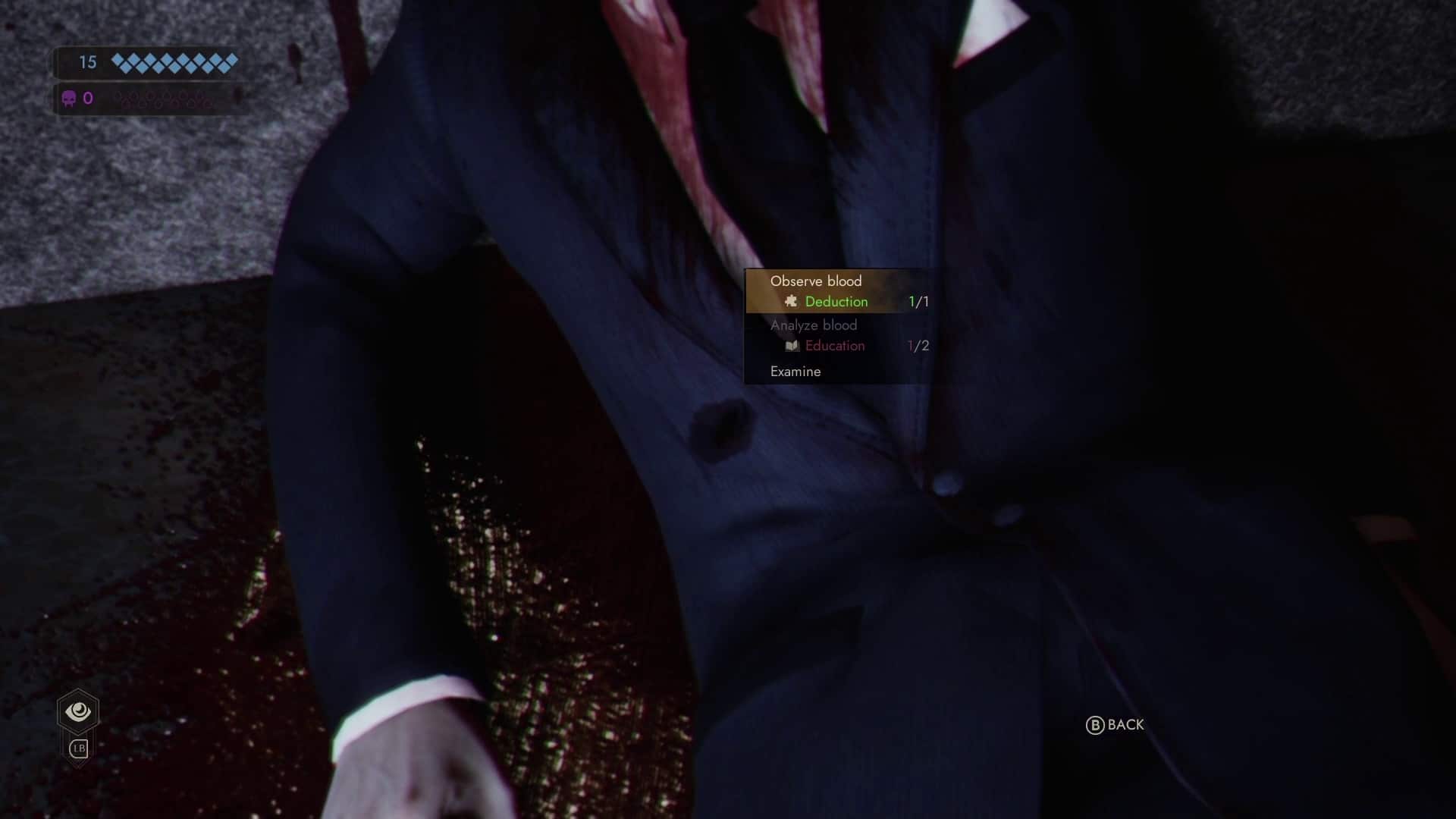
When examining the corpse, Galeb can look at several points: the severed neck, a bullet wound in the abdomen and a ring on the victim’s finger. Especially with the neck and the bullet wound, it is possible to find out even more by using talents.
However, the deduction value of our Galeb is only sufficient here to evaluate the wound on the stomach more precisely. At least we learn from the burnt flesh that the weapon was fired from an incredibly short distance. This is information that would have been completely missing with lower scores.
Talents such as rhetoric or intimidation are also used in conversations. It’s just that living people are often a bit more recalcitrant than simple bullet wounds. So they can defend themselves against such attempts at persuasion with their own values. To increase the chance of success, we resort to focus points. However, we only have a certain amount of them at our disposal and you never know whether this powerful resource will become important later on.
So you should think carefully about whether you should ask the victim’s old, distraught butler too penetratingly about possible affairs of the wife, when this information may not be relevant to the case at all.
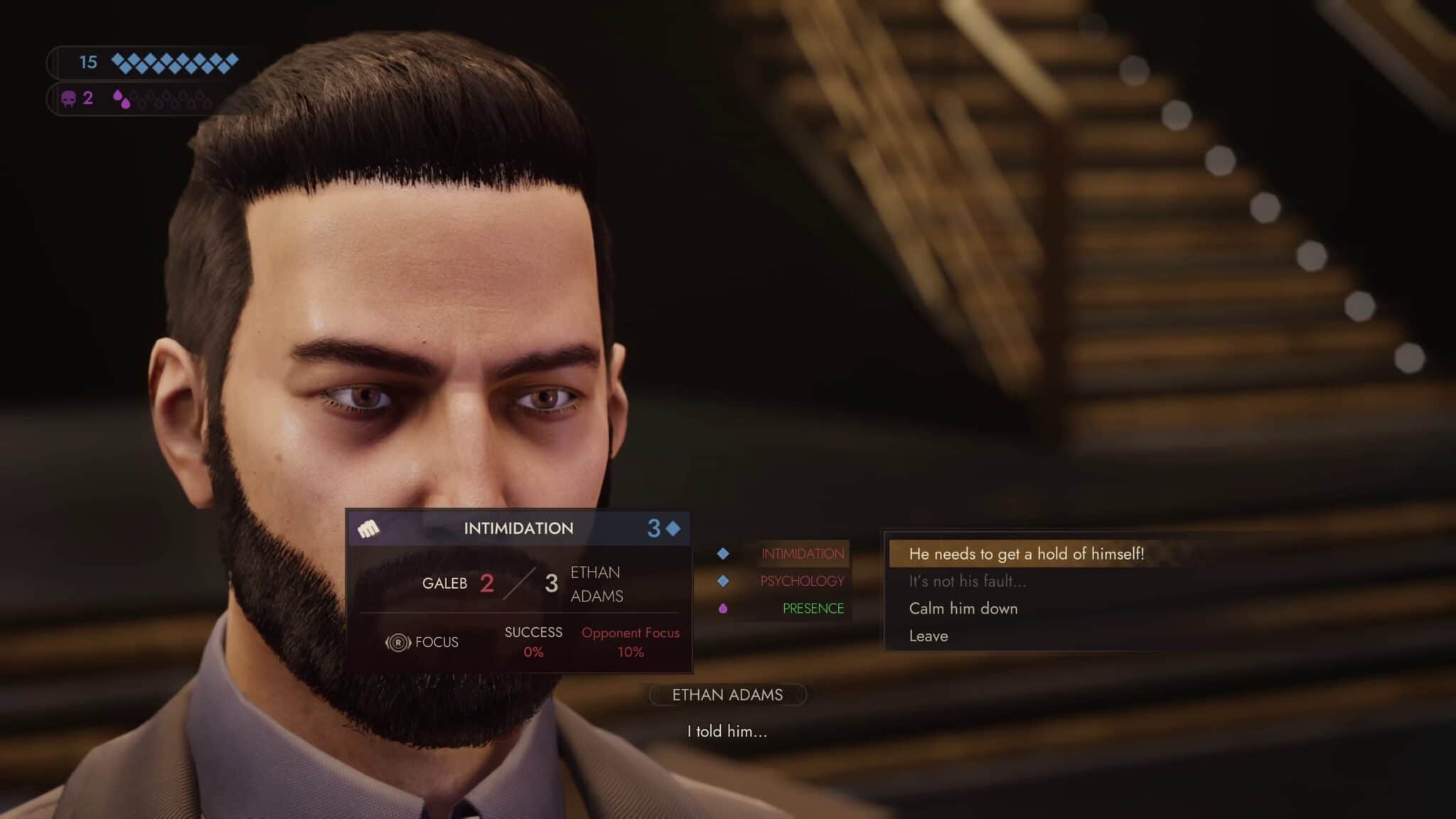
Suppress the thirst for blood
If neither silver tongue nor threat have any effect, Galeb can use other methods. Simple-minded mortals, at least, are at his mercy when Galeb uses his presence to influence their minds. This does not cost him any focus, but the use of vampiric abilities increases the thirst for blood.
If the thirst becomes too strong, Galeb does not immediately turn into a slavering monster, but in certain situations within the story, too much blood thirst can lead to a loss of control. Then our vampire suddenly sucks down even the most protective target faster than a pack of Capri Sun. So if you want to avoid such developments that shape the story, you should keep your thirst under control.
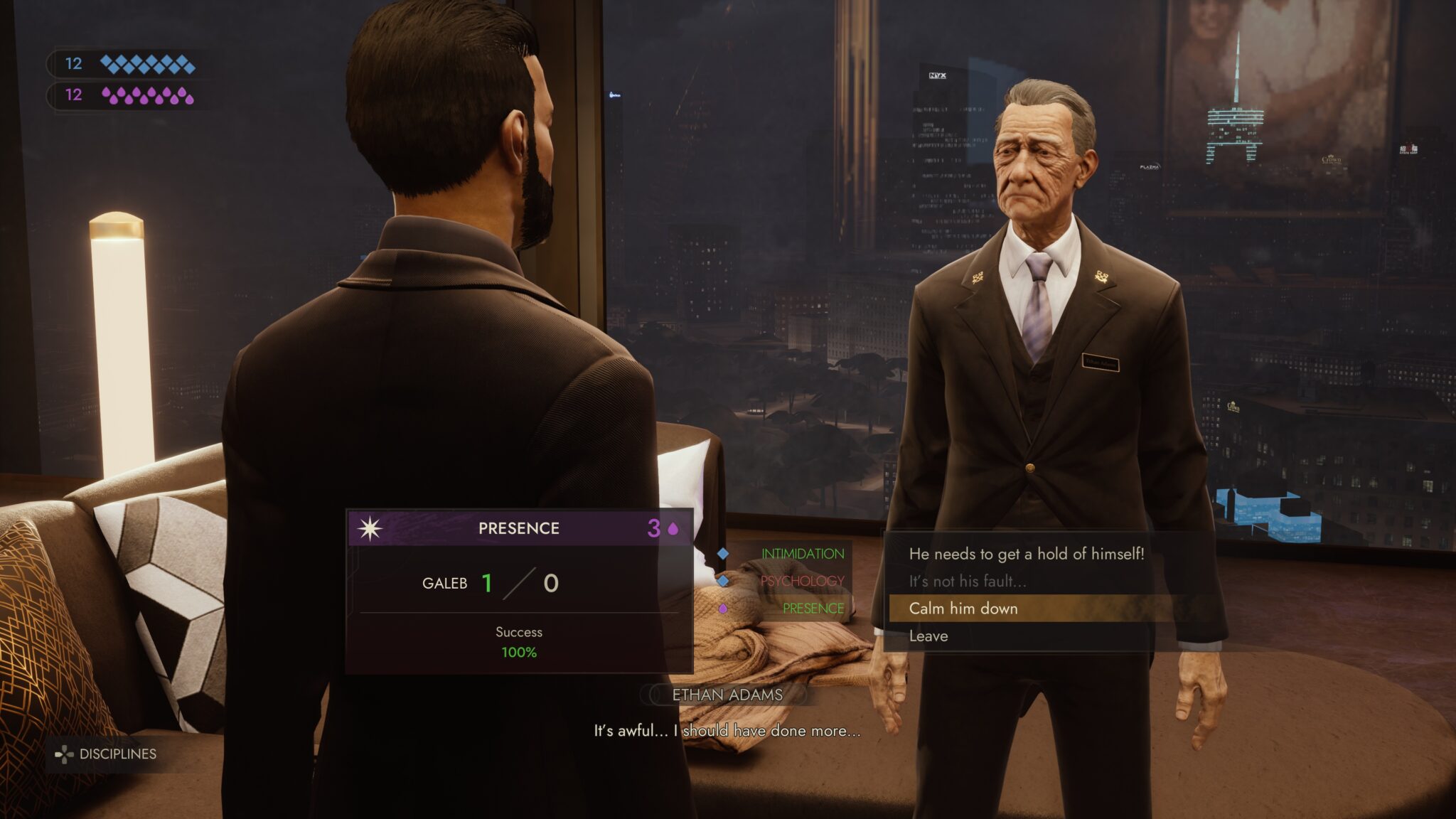
This means either using vampiric disciplines very sparingly or luring (unimportant) NPCs into a safe room and drinking them dry. These characters can even die as a result, which affects whether or not our own vampire clan still trusts us later in the story. No one likes a bungler who leaves his empty blood packs everywhere.
What did we like and what didn’t?
So far we have only played a single mission of Swansong. The main attraction of this title is that our decisions (or failures) have further consequences for the story. The studio did a good job with The Council, but we can’t give an assessment of Swansong yet.
From a purely playful point of view, however, the first demo was already quite revealing.
I like it
The open area consisting of a penthouse and the garage below was surprisingly large and offered a lot of space to look around for clues. The developers noted that not every quest area is this extensive, but here it gave us a certain sense of detective freedom.
In general, the ratio of clues to puzzles seems well balanced. Swansong is definitely aimed at people who don’t just want to blindly follow markers, but like to draw their own conclusions.
Of course, this carries the risk of getting stuck should the right idea fail to ignite. But we always have to pay this price for a proper puzzle challenge without compromise. Especially since the clues seemed quite organic on the one hand, and on the other hand don’t require such great intellectual achievements.
Basically, the puzzles are clever enough to make us feel very smart afterwards. But still simple enough that the solution is easy to find. That’s how it should be.
Don’t like it
The lack of a quest log does have a drawback. Some NPCs get involved in downright wars of words, so-called confrontations. Here we have to try to change their minds through a sequence of arguments. If we choose the wrong arguments too often, the conflict is lost and the information remains hidden. This already happened in a similar way in The Council. But The Council was set in the same place most of the time with the same characters.
As we progressed, we were able to gain info about these characters and thus knew which arguments they were susceptible to in a conflict and which they were not. In Swansong, we don’t have any stored info about the ever-changing characters.
So in the conflict itself we have to think about what is now a right and what is a wrong answer on the basis of statements. Only, at least in our dispute with the garage security guards, this was so opaque that the conflict felt more like a guessing game and less rewarding to our detective instincts. Very unsatisfying.
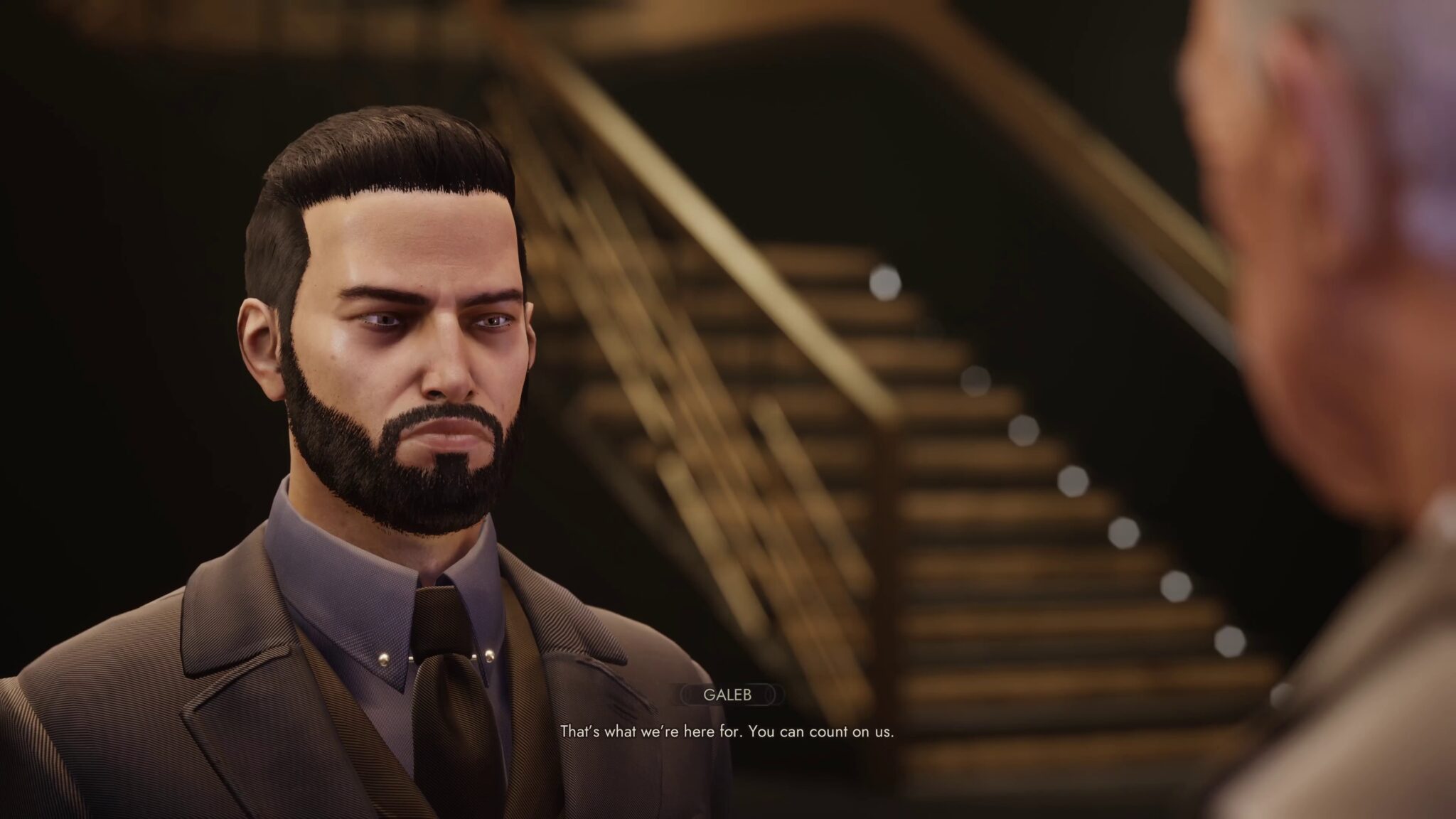
What Swansong also has to chalk up to is the lousy visuals. Of course, this is rather a superficial criticism. But this game is very much about human interaction and dialogue is an important part of the gameplay. So it is annoying when most of the NPCs can hardly show any facial movement, but only stare bloodlessly into the camera.
And no – bloodless is not a positive attribute in a vampire game either.
Editorial conclusion
I love it when a role-playing game withholds information from me. Sounds weird, but it is. I consider it a good sign in an RPG when an underdeveloped skill puts me at a disadvantage. And that happened to me more than once in Swansong. I rage a little inwardly that at various points my powers of deduction are not enough to really decipher all the clues, but that’s fine.
I want to get excited about it! Otherwise my skill wouldn’t matter. This also shows me that Swansong is indeed a full-fledged role-playing game. It matters in which direction I develop my character, and for my taste there are also too few RPGs in which knowledge talents and detective sleuthing are really important.
Yet it is precisely among such games that some true RPG gems can be found. Disco Elysium, for example, also goes in this direction. The Council is another example, even if the role-playing mechanics were even thinner here than they are now in Vampire: The Masquerade – Swansong. I’m not a die-hard fan of the original myself, yet as a role-playing enthusiast I’m extremely excited to hold the finished version in my hands.


